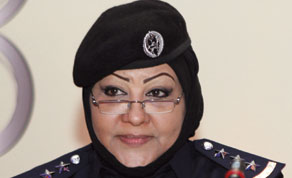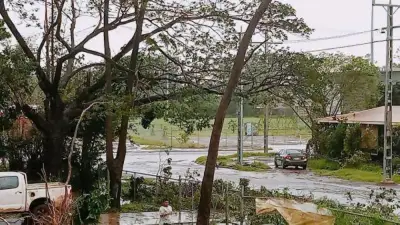 |
| Captain Banna al-Khelaifi |
Captain Banna al-Khelaifi, head of the Media and Awareness Department at the Juvenile Police Department (JPD) said about 46% of juvenile crimes in Qatar are classified as assault on others, while theft crimes constitute 32%. Ethical crimes recorded were only 2% while no juvenile was involved in drug crimes.
In an interview with the local Arabic daily Arrayah said Qatar was free of organised juvenile crime and those that take place are mostly unplanned and happen on the spur of the moment.
Further, cases of juveniles involved in drug dealing or abuse and armed robbery are non-existent in Qatar.
She said the JPD deals with children up to 16 years old. However, a proposed law will raise this limit to 18 years.
“Experience indicates that the high percentage of assault and theft crimes is the outcome of adolescents trying to show off their personalities among their peers.” Boys rank the highest in this category while girls’ cases usually are family-related disputes.
“At JPD, we always stress that a juvenile offender is not a criminal. He is dealt with as a child who has lost his way, and this has to be corrected,” said al-Khelaifi. She said JPD staff do not put on police uniform and wear only civilian clothes so that the young people do not feel intimidated or scared.
The JPD headquarters is a normal building with no police cars outside.
“At JPD, we allow no aggressive measures such as using force to bring in the accused juvenile. Instead, we ask his parents to bring him in and remain throughout the process,” she said.
She explained that during evidence collection, a juvenile’s stay within the JPD headquarters is kept to the minimum, usually less than an hour. Then, he is referred to the Juvenile Prosecution if required.
The accused would be transferred in civilian cars driven by drivers in civilian clothes. “We always take into consideration the humane aspect. The JPD does not use iron shackles on children and it does not have temporary detention cells,” she said.
In case of minor crimes, the JPD prefers that the child remains with his parents after signing an affidavit to protect the child. However, if the case has other legal consequences, the JPD is authorised to keep the juvenile for up to 48 hours.
In case of car theft, where the juvenile normally has no driving licence, extra precaution is taken to act quickly in order to avoid road accidents that might harm the accused or others.
Al-Khelaifi said Qatar is keen to make a special police force for children as well as a house complex especially designed for them. There is also a special prosecution and court for juveniles. The juvenile court is convened every Tuesday at the house complex; not in a regular court to make the children as comfortable as possible and to maintain privacy.
To ensure the safety of minors, the JPD’s Investigation Division in collaboration with other security departments conduct security patrols round the clock targeting potential places of juvenile gatherings, where crimes could take place and report on this accordingly.
As a preventive measure, JPD conducts regular awareness campaigns for children, families and educators and has future plans to broaden its sphere to include all means of mass media.



